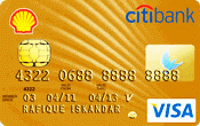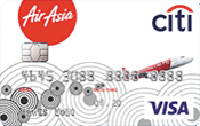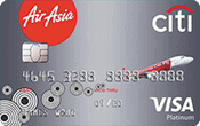What is a credit card?
It is a payment card issued by a financial entity (i.e. the card issuer), which allows a cardholder to purchase goods and services on credit.
How do credit cards work in Malaysia?
Credit cards in Malaysia work similarly to personal loans. When you make a payment using one, you are essentially “borrowing” money from the card issuer. By the end of each month, you are expected to repay the amount you’ve “borrowed”. Failure to do so would see you being charged an interest on your unpaid amount.
In Malaysia, you can hold any number of cards from a maximum of two (2) card issuers if you are a qualified cardholder with an annual income of RM36,000 or less. There are no limitations on the number of cards and card issuers if your annual income is above RM36,000. Do take note that a service tax of RM50 is imposed per principle card per year, while a service tax of RM25 is imposed per supplementary card per year.
What are the different credit card categories in Malaysia?
There are various types of credit card, each with differing privileges and features. In Malaysia, these are the major categories of credit card you can consider applying for:
- • Rewards credit cards: These cards give you reward points for purchases made using the credit card. Reward points are redeemable for gifts, vouchers and other products as indicated in the issuer’s reward catalogue.
- • Cash back credit cards: These cards give you back a percentage of the amount spent. Each credit card provides different terms and conditions on where and how you can receive cash back on your spending.
- • Low interest: These cards offer lower interest rates compared to conventional cards.
- • Travel credit cards: These cards give you mile points for selected purchases. Mile points are redeemable for travel-related privileges, such as air tickets and seats upgrades with participating airlines.
- • Petrol credit cards: These cards offer petrol-related benefits, such as cash rebates or extra reward points on fuel and spending at petrol kiosks.
- • Dining credit cards: These cards allow you to enjoy exclusive discounts and promotions from various restaurants when you swipe the card for your dining expenses.
- • Shopping credit cards: If you like shopping, these credit cards reward you with exclusive offers and various discounts from popular shopping outlets.
- • Premium: Premium cards offer promotions and privileges that focus on higher-end products and
services, such as golfing, fine-dining and exclusive clubs.
- • Islamic credit cards: These are credit cards, which are compliant to the Islamic law of Shariah.
YYou will find that the comparison page lets you compare cards and helps you find the best card according to your lifestyle. The credit card details listed include promotions, best cards in Malaysia, and zero annual fee cards. You can even perform an application online in the same seating!
Credit card interest rates in Malaysia
Card issuers adopt a tiered system when it comes to interest rates. Generally, you will be charged a higher interest rate should you display a history of inconsistent repayments, and a lower interest rate should you display a history of prompt repayments. In Malaysia, interest rates commonly come in a range of 13.5% – 17.5% p.a. Some card issuers may also have higher or lower interest rates depending on their operating policies.
Minimum monthly repayments in Malaysia
In Malaysia, card holders are generally required to make a minimum payment of 5% of the bill (or a
minimum of RM50) on a stipulated due date every month. Failure to do so may result in a penalty that is
equivalent to 1% of the unpaid amount on your bills (or a minimum of RM10).
Credit limits in Malaysia
In Malaysia, card holders with income of RM36,000 or less in a year is restricted to a maximum credit limit of twice of his/her monthly income. For example: If your monthly income is RM2,000, your credit limit would be a maximum of 2 × RM2,000 = RM4,000. Credit limits for those earning above RM36,000 are determined by the card issuers.
How many cards can you hold in Malaysia
In Malaysia, those who earn an annual income of RM36,000 or less, will be allowed to hold a maximum of two (2) credit cards. There are no limitations on the number of cards and card issuers if your annual income is above RM36,000. However, a service tax of RM50 will be imposed per principal card per year, while a service tax of RM25 is imposed per supplementary card per year.
Process and documentations needed for an application
After you compare the cards on the comparison page, you can apply for one online for FREE using iMoney’s online calculator. The documents needed for an application differ from card issuer to card issuer, but commonly include:
- For employees:
- A copy of your MyKad (both sides), latest three-month payslips + latest three-month bank statements
OR latest three-month EPF statements.
- For self-employed:
- A copy of your MyKad (both sides) and latest Borang B/BE with LHDN acknowledgement.




































